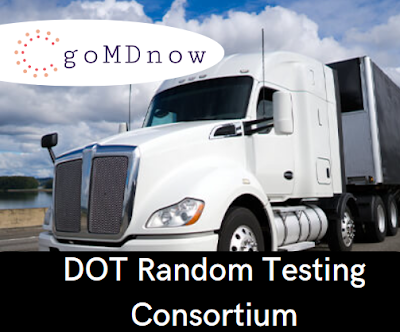Drug & Alcohol Consortium

Drug & Alcohol Consortium goMDnow provides complete drug and alcohol testing program management. Our consortium members get help with regulatory compliance, managing the random selection, reducing delays in the testing process, quality assurance, audit preparation, document retention and preparation, and consolidated billing. The goMDnow Consortium can support customized drug and alcohol screening programs, including any and all testing: pre-employment, random, reasonable suspicion, post-accident, return to work, and follow-up testing. We can also help develop new testing policies and programs, customized to your needs. The breadth of the program is up to you. The currently mandated random testing rates for each driver pool are: Drugs: 25%, Alcohol: 10%. Test rates are systematically reviewed and may be changed by the DOT. Become a goMDnow Alliance member today! FMCSA Regulations: Required Drug Testing Commercial driver license holders and their employers who operate commercial...




.png)
